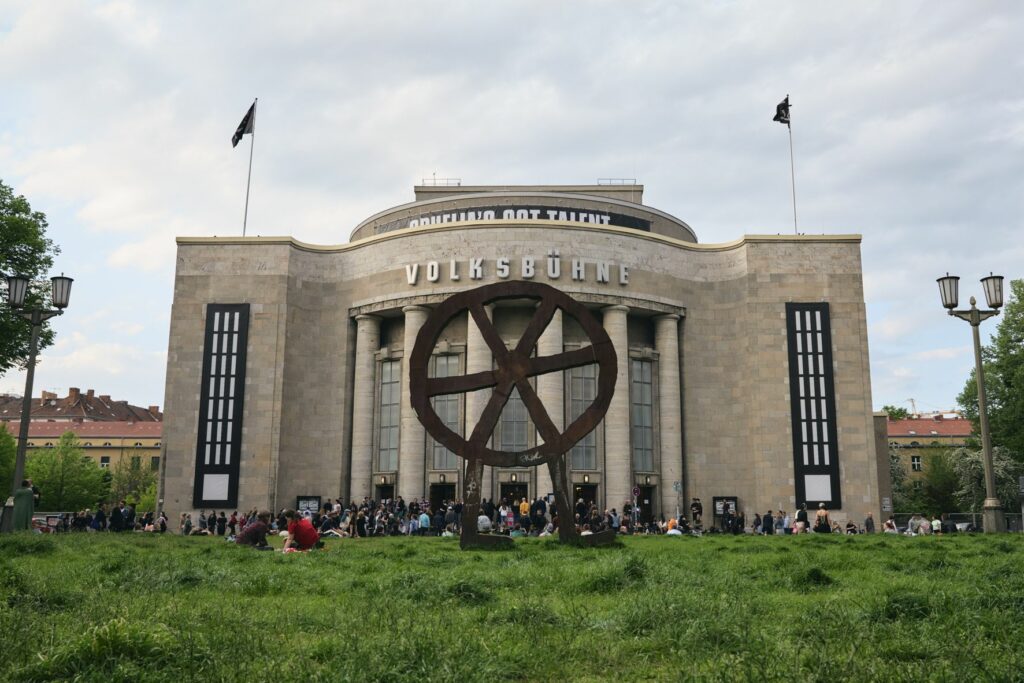–
Migration is a decision, says Houman Memarpanahi, founder of RoBeRoo Mansion, an independent production space in Tehran at the May 13 „Artistic Work in Exile“ conversation, a part of the Solidarity Treffen. „Exile means being pushed into a certain decision,“ he adds.
With him on the stage of the red salon of Volksbühne are performer Sorour Darabi and dramaturge Negar Foroughanfar. Artist Ozi Ozar moderates – and also speaks out – against the structure and organisation of the Theatertreffen. Instead of focusing on the issue of solidarity and the challenges faced by artists in exile, one of the issues at stake is whether this year’s Theatertreffen curators are living up to the task of making the festival more diverse and accessible.
Lost in details
Audience members who do not know the details of the situation in Iran are not picked up by the moderator, but are rather confronted with interspersed information: sometimes it is about the Iranian diaspora; sometimes about racism, demos and Hanau; sometimes about hijab laws. The questions that arise here: Does the event only aim to empower those who are affected? Or does it also want to inform the ignorant about the realities of life of artists in exile?
But anyone who wants to be heard – who wants access and attention – should also create connections, provide transfer, enable contextualisation. For only through understanding does an empathy arise with the potential to evoke solidarity.
Although three special people are sitting on stage, the panel discussion gets lost again and again in details and anecdotes that only those who know the discourse understand. Other viewers are left dialled-in.
„I want my family to visit me, I miss them, but they can’t get a visa for Germany,“ Negar Foroughanfar answers the question of what artists-in-exile need. The reason, she says, is that then there is the worry that her family will stay here. „Completely absurd, why would anyone want to stay here?“ she replies to this claim by the German authorities. Her voice conveys the frustration, the emotions connected with it, what the discussion actually wanted: to show the people on stage not only as exiles, but as humans who face special challenges.
